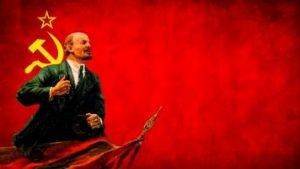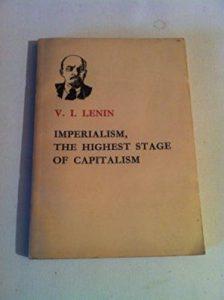The BJP Must Remember That Lenin, And Not the RSS, was More Supportive of India’s Anti-Colonial Struggle

Several people have been shaken by the visuals of Vladimir Ilyich Lenin’s statue being taken down by BJP cadres on Monday at Belonia town in south Tripura.
This occured just 20 hours after the Left suffered its first loss, in Tripura, after more than two decades. The coalition of Bharatiya Janata Party (BJP) and Indigenous Peoples Front of Tripura (IPFT) has been engaging in post-poll violence, leading to widespread unrest in the region. Reports have come in that another statue was destroyed on Sunday in Sabroom, about 50 kilometres from Belonia.
This is not just a probelm of law and order. It is a clash of ideologies and beliefs.
Consider BJP south district secretary Raju Nath’s statement, published in The Indian Express:
For years, there has been resentment against this statue of Lenin. It was built by the municipality and funded by the taxpayers’ money. Why should the taxpayer have to finance a statue of Lenin? Even if it was a statue of our former CPI(M) chief minister Nripen Chakraborty, nobody would have touched it — he was one of us and belonged to the country. But what does this foreigner Lenin have to do with our people?
It seems Nath needs to be reminded that Lenin belonged to “the people” of India long before his party was formed. Even a cursory look at history will tell us that Lenin was supportive of anti-colonial struggles across the world and never saw himself only as a Russian.
In the first half of 1916, he wrote Imperialism, the Highest Stage of Capitalism, one of the most stringent and theoritically sound critiques of imperialism.

Image courtesy Imperial and Global Forum
In a letter written on 12 March, 1917, and published in 1924, he mentioned the work while respnding to a statement made by Maxim Gorky, a Russian novelist, dramatist, and poet. The Soviet Union was yet to be formed, and, wiritng in 1917, he listed the programme that the Bolshevik Party needed to undertake in order wrest power from the Provisional Government that had formed after the fall of the Tsar. The following is the fourth point, among other significant points that he made:
It (the Party programme) would immediately bring to the knowledge of all the poeple, our, the workers’ and peasants’, peace terms:
liberation of all colonies;
liberation of all dependent, oppressed and unequal nations.
Lenin was a great polemicist, and, after almost a hundred years, it should not suprise us why he remains such an ennobling figure in many nations which were once colonies. Here is a line from his emphatic appeal to all the workers and peasants, which he made shortly after, methodically, listing the programmes that needed to be undertaken:
Workers and peasants! — the Soviet of Workers’ Deputies would say – are you willing to pay these gentry, the capitalists, hundreds of millions of rubles every year, for a war waged for a division of the African colonies, Turkey, etc.?
For these peace terms the Soviet of Workers’ Deputies would, in my opinion, agree to wage war against any bourgeois government and against all the bourgeois governments of the world, because this woruld really be a just war, because all the workers and toilers in all countries would work for its success.
After more than seventy years of India’s successful anti-colonial struggle, the nation’s workers's still work in deplorable condition. Various measures of working conditions show that they've been spiralling down, well below universal standards. There can be no doubt, then, why Indians, especially the vast majority of its population – the workers and the poor — would want to build Lenin’s statues.
Lenin may be "only a foregner" for Raju Nath, whose party’s bigger idelogues, the founders of Rastriya Swamsevak Sangh, had never suppported the anti-colonial struggle against the British.
But, for the vast majority of Indians, most of who are poor workers, Lenin is someone they look up to.
Get the latest reports & analysis with people's perspective on Protests, movements & deep analytical videos, discussions of the current affairs in your Telegram app. Subscribe to NewsClick's Telegram channel & get Real-Time updates on stories, as they get published on our website.
























